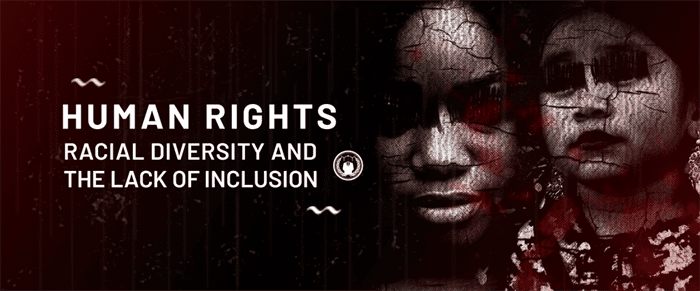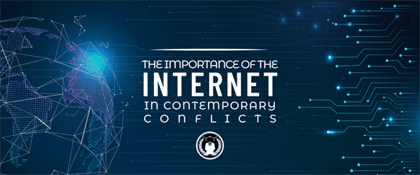Human Rights - Racial Diversity and the Lack of Inclusion
The ethnic diversification of Brazil is one of the most remarkable aspects when we analyze the Brazilian population. Even before colonization happened, the indigenous population was already approaching three million, which implies a very large ethnic diversity among the native peoples. Therefore, the beginning of colonization and the arrival of African people coming from the slavery process, added to future immigrations of various peoples, among them Europeans and Asians, resulted in the miscegenation of the Brazilian population. Finally, in view of all the colonial racism, unfortunately the miscegenation process took place through an ethnic and cultural genocide. Due to slavery and the murders of indigenous people and slaves, much of their culture was lost in the colonization process. A reflection of this is the current Brazilian flag, which has no reference to the native peoples of the time, in reality it is a representation of the colors of the royal houses of the Portuguese families. This shows that over the years the native Brazilian culture has been disappearing, with European interests always prevailing.
It is common knowledge that the abolition of slavery occurred due to economic interests, and not because of a real overcoming of slavery ideology. But how would the colonizers present to Europe a Brazil composed mostly of black people? The solution for them was to try to sanitize the population, promoting the erasure of their ethnic identities and repressing cultural practices, another measure adopted was the displacement of poor families (composed mostly of black people) who lived in the center, to the margins of the city. In this way, even after the abolition of slavery, the prejudice and exclusion of former slaves remained.
In view of the exclusion of racial minorities, after much struggle by black people, policies have been created that policies to reduce and even end these disparities that have occurred over the years. Among the policies were laws such as the racial slur law, which made any form of discrimination a non-bailable crime. With such an achievement, acts of hate against black and indigenous people have decreased to a great extent. It also created quota policies for the inclusion of black and indigenous people in various areas, such as in public jobs and in admission to public universities, for example. Despite these measures, there is still a long way to go for the inclusion of ethnic minorities in society, much due to Brazil's colonial past.
Colonization in Brazil left racism as an inheritance, we still live within a structurally racist society, where many still ignore the struggle of ethnic minorities and despise it.
The structural racism can occur on a daily basis, and often goes unnoticed. The microaggression is one example, it is a form of subtle prejudice often used in a harmless and unassuming way. In this way, racism appears as bad jokes and everyday phrases with the use of prejudiced terms. In such a way, microaggression remains a form of ethnic exclusion, much because of its hidden prejudice, so it must be combated in all areas.
The indigenous genocide was not left behind either. Thousands of Indians died, from diseases brought from Europe and murdered by the colonizers, about 2.7 million of this population died in 150 years of Portuguese colonization. Nowadays the indigenous peoples are demanding the demarcation of their lands and denouncing the invasion of businessmen and land-grabbers, sometimes facilitated by the rural caucus, which for years has been boycotting and hindering the conquest of rights, especially the demarcation of their territories. This factor is crucial for the marginalization and exclusion of these people.
With these attitudes of the rural caucus, we can see that it was never in the government's interest to make ethnic diversity democratic. Since the beginning of the Brazilian republic all rights have been won by black people being oppressed in some way. Thus, the ideas of segregation of ethnic minorities was supported several times by the government. This fact was especially present during the military dictatorship, a period in which thousands of black people suffered oppression because of their skin color. Finally, even though Brazil has almost half of its black population, only 18% of blacks are included in politics, confirming the segregation that exists in society.
The dominant ideology also had its contribution in boycotting ethnic rights movements, emptying meanings, and co-opting agendas for its own interests. All this with the help of the mainstream media that replicated its discourse, taking advantage of its great reach and credibility.
The struggle for racial inclusion will be long and violent, it is not in the interest of the ruling class and much less the current social order to overcome the marginalization of black and indigenous people, opposing forces always try to subvert the values and ideals of the struggle, the media will always misrepresent the events.




